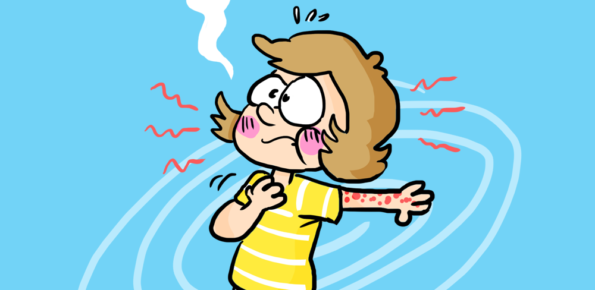Introduction:
Allergic reactions can be more than just a minor inconvenience – they can significantly impact our daily lives. Whether it’s a seasonal sniffle or a severe response to a specific substance, understanding allergic reactions is the first step towards effective management. In this article, we’ll break down the basics of allergic reactions, their symptoms, and how to navigate them with ease.
What Causes Allergic Reactions?
Allergic reactions occur when the immune system responds to a usually harmless substance as if it were a threat. These substances, known as allergens, can be found in pollen, pet dander, foods, insect stings, and more. When the immune system identifies an allergen, it releases chemicals like histamine, triggering the symptoms associated with reactions of allergy.
Common Symptoms of Allergic Reactions
Recognizing allergic reaction symptoms is crucial for prompt and effective management. Symptoms can vary widely, but common signs include:

Sneezing and Runny Nose: Allergies often manifest with sneezing fits and a runny or congested nose.
Itchy Eyes and Skin: Irritation and itching, especially around the eyes and skin, are common allergy symptoms.
Coughing and Wheezing: Allergies can affect the respiratory system, leading to coughing and wheezing.
Skin Rashes and Hives: Contact with allergens can result in skin reactions, such as rashes and hives.
Swelling: Severe reactions of allergy may cause swelling, especially around the face and throat.
Immediate Responses to Allergic Reactions
When faced with an allergic reaction, quick action is key. Over-the-counter antihistamines can help alleviate mild symptoms, providing relief from itching and congestion. However, for severe reactions like anaphylaxis, which can be life-threatening, seek emergency medical attention immediately.
Prevention and Management
Preventing allergic reactions involves identifying and avoiding allergens. Keep your living space clean, invest in allergen-proof bedding, and be mindful of potential triggers. For those with known allergies, carrying an epinephrine auto-injector is essential for emergency situations.
When to Seek Professional Help
If reactions of allergy are persistent, severe, or affecting your quality of life, it’s time to consult with an allergist or immunologist. Allergy testing can help pinpoint specific triggers, allowing for targeted treatment plans tailored to your needs.
Conclusion:
Understanding allergic reactions empowers us to take control of our health and well-being. By recognizing symptoms, taking immediate action, and implementing preventive measures, you can navigate the challenges of allergies with confidence. Remember, seeking professional guidance is crucial for a comprehensive approach to allergy management. Embrace a life where allergic reactions no longer dictate your daily experiences, and take the first step towards a healthier, symptom-free future.
